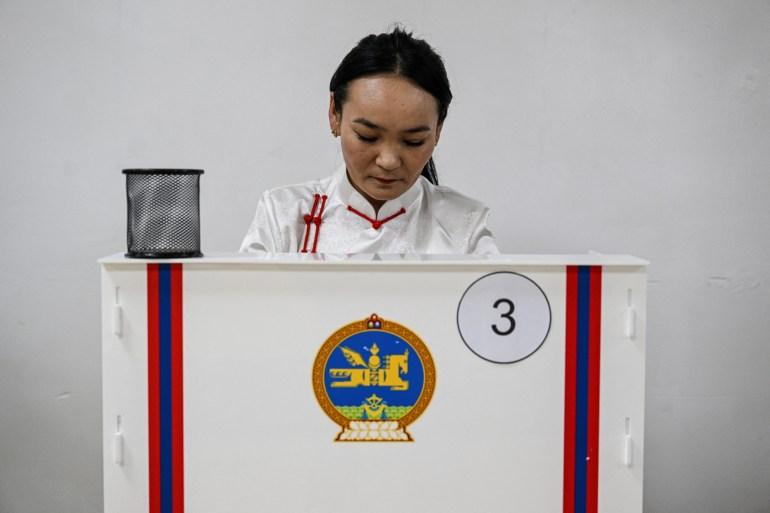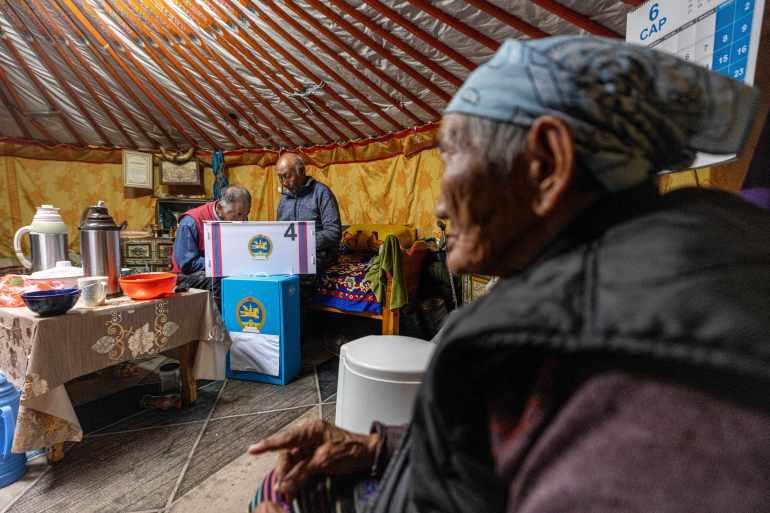Source: ALJAZEERA
ALJAZEERA MEDIA NETWORK

Mongolian People’s Party expected to secure victory amid public frustration over corruption and the economy.
Polls have closed in Mongolia, with the ruling Mongolian People’s Party (MPP) widely expected to secure victory despite mounting public discontent over corruption and the economic situation.
Voters from across the vast nation, positioned between China and Russia, have chosen 126 members for an expanded State Great Khural, the country’s parliament.
Preliminary results are anticipated to be available shortly due to automated vote counting processes.
The MPP, led by Prime Minister Luvsannamsrain Oyun-Erdene, achieved a landslide win in the previous elections in 2020. However, there is a growing frustration over entrenched corruption, high living costs, and limited opportunities for the nation’s predominantly young population.
Enkhmandakh Boldbaatar, a 38-year-old voter on the outskirts of Ulaanbaatar, expressed dissatisfaction with both the MPP and the main opposition Democratic Party. He remarked on the lack of progress in his area over the years, indicating a desire for more development efforts.
The center-right anti-corruption HUN party is expected to gain more seats, leveraging social media and fielding professional candidates with strong support from the urban middle class.
Youth awareness of political activities is on the rise, with many young people critical of the MPP’s performance over the past four years. This sentiment has translated into reduced support for the party.
 An older woman inside a traditional Mongolian gert. There is a mobile polling box set up. The woman has a scarf tied in her hair and is wearing a thick coat. Two elderly men are standing at the voting booth. There are flasks and bowls on a nearby table.
An older woman inside a traditional Mongolian gert. There is a mobile polling box set up. The woman has a scarf tied in her hair and is wearing a thick coat. Two elderly men are standing at the voting booth. There are flasks and bowls on a nearby table.
Mongolia's position in Transparency International’s Corruption Perceptions Index has dropped, underscoring concerns about corruption within the country. Press freedom and the rule of law have also seen declines under the MPP's leadership.
At a recent rally, Prime Minister Oyun-Erdene accused political rivals of fostering corruption in Mongolia, advocating for a return to "discipline." A survey by the Sant Maral Foundation indicated that over a third of Mongolians believe the nation is veering towards dictatorship.
The election season in Ulaanbaatar has been marked by vibrant campaign posters showcasing candidates from various backgrounds spanning populist businessmen, nationalists, environmentalists, and socialists.
For the first time in almost a decade, parties are mandated to ensure that 30% of their candidates are women, promoting greater gender inclusivity.
Former President Tsakhiagiin Elbegdorj emphasized the importance of democratic and transparent elections, as Mongolia, having embraced democracy in 1990, navigates significant challenges including corruption, unemployment, and inflation exacerbated by the COVID-19 pandemic and repercussions from the conflict in Ukraine.
Livestock herders in Mongolia suffered losses due to harsh winter conditions, underscoring the multifaceted challenges facing the nation.
Your email address will not be published. Required fields are marked *